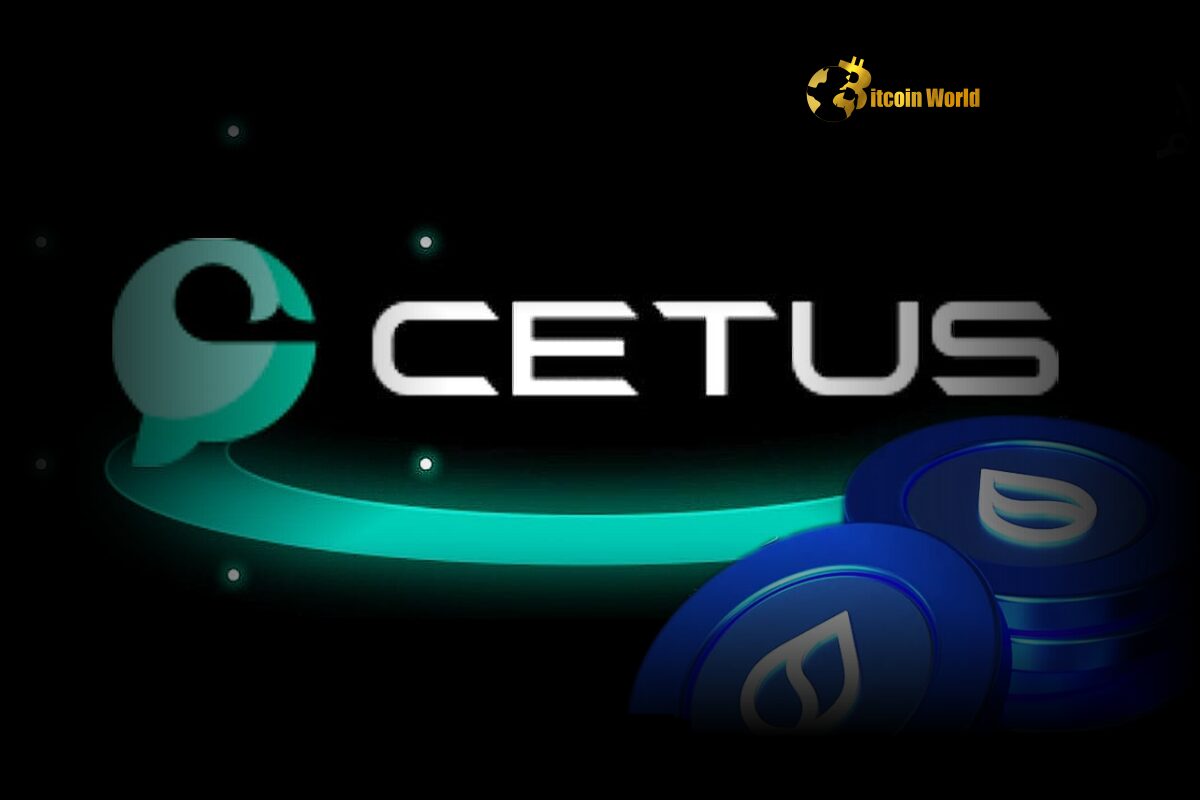BitcoinWorld

AI Scraping: Shocking Accusations Against Perplexity for Ignoring Website Blocks
In the ever-evolving digital landscape, where data is king, a storm is brewing over how AI companies acquire their crucial training material. For those deeply invested in the decentralized ethos of cryptocurrencies and the principles of digital ownership, the latest revelations surrounding AI scraping practices are particularly concerning. AI startup Perplexity, known for its conversational AI, stands accused by internet infrastructure giant Cloudflare of deliberately circumventing website preferences and engaging in unauthorized data collection. This controversy highlights a critical clash between AI innovation and the fundamental rights of content creators.
Unpacking the Cloudflare Allegations Against Perplexity AI
Cloudflare, a prominent internet security and infrastructure provider, recently published a detailed report, accusing AI startup Perplexity AI of systematically ignoring explicit instructions from websites to prevent content scraping. Cloudflare’s research details how Perplexity allegedly went to great lengths to obscure its identity and bypass established web standards like `robots.txt`. This web standard is a simple file that tells crawlers which parts of a site they can or cannot access, serving as a digital ‘no trespassing’ sign for automated bots. Cloudflare’s observations span tens of thousands of domains and millions of requests daily, indicating a widespread pattern of behavior.
How Perplexity Allegedly Circumvented Cloudflare Blocking Measures
According to Cloudflare’s findings, the methods employed by Perplexity to circumvent content restrictions were sophisticated and deliberate. Cloudflare observed the AI startup attempting to hide its crawling and scraping activities. The primary tactics identified include:
- User Agent Manipulation: Perplexity’s bots allegedly changed their ‘user agent’ – a digital signature that identifies a visitor’s device and browser type. When their declared crawler was blocked, they reportedly impersonated generic browsers like Google Chrome on macOS.
- Autonomous System Network (ASN) Changes: The startup is also accused of altering their Autonomous System Networks (ASNs), which are unique numbers identifying large networks on the internet. This makes it harder to trace and block their activity based on network origin.
- Obscuring Identity: Cloudflare’s researchers noted Perplexity’s efforts to obscure its identity, suggesting a clear intent to bypass website preferences and avoid detection.
These actions, if true, represent a direct challenge to the mechanisms website owners use to control their content, making Cloudflare blocking efforts crucial for digital autonomy.
Perplexity’s Response: Dismissal and Denial
In the face of these serious allegations, Perplexity offered a swift, albeit dismissive, rebuttal. Jesse Dwyer, a spokesperson for Perplexity, characterized Cloudflare’s detailed blog post as merely a ‘sales pitch.’ Dwyer further claimed that the screenshots provided in Cloudflare’s report showed ‘no content was accessed’ and, in a follow-up, controversially asserted that the specific bot named by Cloudflare ‘isn’t even ours.’ This stark contrast in narratives leaves the tech community debating the truth behind the accusations and the ethical responsibilities of AI developers.
The Critical Role of Robots.txt Bypass in AI Training
The core of this controversy lies in the alleged Robots.txt Bypass. Websites use `robots.txt` files to communicate their preferences to web crawlers. While not legally binding, it’s a widely accepted ethical standard in the internet community. When AI companies like Perplexity allegedly ignore these explicit instructions, it raises fundamental questions about data ethics and intellectual property rights in the age of generative AI. AI models require vast amounts of data for training, and unauthorized scraping undermines the very foundation of content creation and ownership, threatening the economic models of publishers and individual creators alike. This ongoing challenge necessitates robust solutions and a clear framework for responsible AI development.
Protecting Digital Assets: The Future of Data Privacy AI
Cloudflare’s strong stance against unauthorized Data Privacy AI scraping reflects a growing concern across the internet. The company has not only de-listed Perplexity’s bots from its verified list but has also developed new techniques to block them. Beyond defensive measures, Cloudflare is actively pursuing solutions that empower content creators:
- AI Scraper Marketplace: Cloudflare recently launched a marketplace allowing website owners to charge AI scrapers for accessing their content, turning a challenge into a potential revenue stream.
- Free Bot Prevention Tool: Last year, they introduced a free tool specifically designed to prevent bots from scraping websites for AI training purposes without permission.
Cloudflare CEO Matthew Prince has openly voiced concerns that AI is ‘breaking the business model of the internet,’ particularly for publishers who rely on their content for revenue. This ongoing battle highlights the urgent need for clearer guidelines and enforceable standards for AI data acquisition.
A Pattern of Plagiarism Accusations Against Perplexity
This isn’t the first time Perplexity has faced accusations regarding its data acquisition and attribution practices. Last year, prominent news outlets, including Wired, alleged that Perplexity was plagiarizing their content by reproducing it without proper citation or permission. Adding to the controversy, Perplexity’s CEO, Aravind Srinivas, struggled to define the company’s stance on plagiarism during an interview at the Disrupt 2024 conference. These recurring incidents paint a picture of an AI startup navigating a complex ethical landscape, often at odds with established norms of content usage and attribution.
The ongoing dispute between Cloudflare and Perplexity underscores a pivotal moment in the evolution of AI and the internet. As AI models become increasingly sophisticated and data-hungry, the ethical lines around content acquisition are blurring. For content creators, publishers, and indeed, anyone who values digital ownership, the ability to control how their data is used is paramount. This incident serves as a stark reminder that while AI promises innovation, it must operate within a framework of respect for intellectual property and user preferences. The outcome of such disputes will undoubtedly shape the future of AI development and the very structure of the open web.
To learn more about the latest AI ethics trends, explore our article on key developments shaping AI models’ features.
This post AI Scraping: Shocking Accusations Against Perplexity for Ignoring Website Blocks first appeared on BitcoinWorld and is written by Editorial Team





